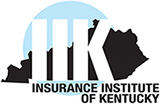IIK Leads in Passage of Major Insurance Fraud Bill
IIK was one of the major leaders in the passage of a major bill designed to combat insurance fraud in Kentucky. Insurance fraud has been a major problem for years in Kentucky, especially in and around the Metro Louisville area. Among the reasons that fraud is so prevalent here are:
- The penalties for insurance fraud didn’t even match those for theft. Prosecutors often did not have enough “firepower” to use against those committing insurance fraud.
- After an accident, some use accident reports to solicit you for medical/legal services in violation of current statutes. Those making the solicitations are often at the forefront of questionable claims made to insurers.
- Unlike a lot of other states, KY did not have a “Stark Law.” The Stark law is a Federal law that prohibits a medical professional from making a referral to another entity in which he/she has a financial interest for Medicare and Medicaid billings.
HB 151, sponsored by Rep. Joe Fischer (R -Ft. Thomas) was defined to correct some of those problems with the following major provisions:
- The criminal penalties for insurance fraud are increased to match those for theft found in KRS 514.030.
- Medical licensure boards are now required to report suspected insurance fraud to the DOI Fraud Investigation Division. DOI investigates all such reports for a possible criminal referral.
- In the statute dealing with access to accident reports, the definition of “news-gathering organization” was clarified to include newspapers and periodicals, radio/TV stations with an FCC license, cable/satellite news organizations, and websites for those organizations. In addition, online-only news magazines and other news outlets were included in the definition. Personal information must be redacted from accident reports bought by “other news outlets” only; other news organizations may continue to receive unredacted reports.
- A Stark Law was established in KY for most medical providers.
HB 151 was endorsed by major anti-fraud organizations such as the National Insurance Crime Bureau and the Coalition Against Insurance Fraud. In addition, IIK worked with other stakeholders to assure that legitimate medical providers and businesses would not be adversely affected by any unintended consequences of the bill. The bill becomes law on June 27.
